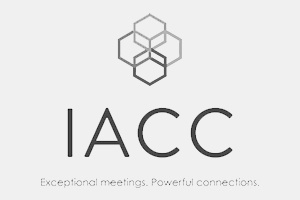Jane Neil and Kathryn England from White Cloud Training and Coaching are speaking at this year's Learning and Development Thought Leaders' Conference. Here is an exclusive Q&A about what you can expect from their session...
Tell us about White Cloud? What do you do and  how did it begin?
how did it begin?
Jane Neil and Kathryn England are partners at White Cloud Training and Coaching. We created the partnership in 2017 but worked together for many years prior to this. We focus on two things:
Firstly, we work with a variety of organisations to deliver accredited Mental Health First Aid Training in workplaces, schools and universities. We are also involved in the leadership of a youth charity called ‘Lifespace’, based in Warwickshire, working across 30+ schools offering one to one mentoring for children and young people in order to reduce their distress, increase their resilience and help them achieve more. In addition, we provide coaching and supervision services for individuals in the corporate and education sectors.
What is Mental Health First Aid?
Many people will be familiar with physical First Aid and it is a useful comparison to make. When we offer First Aid to someone in need, we don’t provide a ‘cure’, but do create a safe space to assess the situation, offer remedial help and secure relevant professional help. Mental Health First Aid (MHFA) is no different. It is not about diagnosis but enables people to spot signs and symptoms of mental ill health, to listen non-judgmentally, offer practical and emotional support then signpost to professional help and other supports.
What are the stigmas surrounding mental health?
Too many to list! Some we are conscious of and others less so. During our training we consider our own frames of reference when it comes to mental health. How were we brought up to think about people with mental health conditions? Is it something we’d talk about openly in the workplace? If not, why not?
How important is Mental Health First Aid in the workplace?
Our mental health is an integral part of our overall health and it will fluctuate over time. Naturally this may impact on performance at work, but with the correct treatment and a strong support network, individuals with diagnosed mental health conditions deliver very effectively in the workplace. Employees can feel unsure about disclosing mental health issues at work. Mental Health First Aiders are trained to have those conversations, are confident to discuss it and encourage a culture of openness.
How can Mental Health First Aiders support cultural change?
Many organisations will be considering a strategic approach to the overall wellbeing of their employees. Within this they will almost certainly have looked at some overall targets, strategies to deliver them and how they will measure their success. One piece of the jigsaw to deliver those strategies will be education, and that’s where MHFA training plays a part. Equipping Line Managers and colleagues to identify and support those who are experiencing mental ill health can help to reduce stigma, create a new dialogue and enhance performance.
What can people learn from your session at the L&D conference?
We hope the session will provide an opportunity for participants to reflect upon their own beliefs about mental ill health and how it is perceived within their organisation.
- We’ll demonstrate that mental ill health is not a ‘minority issue’.
- We’ll consider how effective workplace performance and diagnosed mental health conditions can co-exist.
- We’ll demonstrate how MHFA training could fit in to an organisational employee wellbeing strategy.
- We’ll provide an overview of the MHFA programmes available and showcase some course content.






